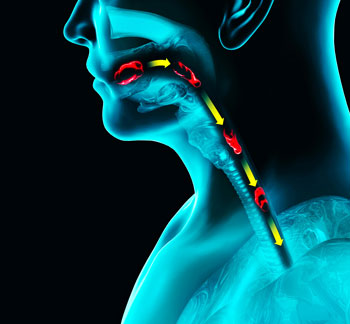Consider menopause's impact ‘beyond the bikini area’
While 80% of women have menopausal vasomotor symptoms, 70% of them go untreated.
Women live half of their adult life in menopause, and many women have bothersome vasomotor symptoms that need to be addressed. In addition, the menopause transition is associated with cardiometabolic changes such as dyslipidemia, central weight gain, and risk of metabolic syndrome. It's an all-encompassing internal medicine issue focusing beyond the bikini area.
One of the most important points when assessing midlife women's health is acknowledging that 80% of women have vasomotor symptoms (hot flashes and night sweats), yet 70% of those women go untreated. But menopausal symptoms can go well beyond that. They can include depression and anxiety, dyspareunia as well as sleep disturbance.
The average age of menopause in the United States is 52 years. As internal medicine physicians, it is important to ask midlife women if they having hot flashes and night sweats. And if so, how many are they having, and are they bothersome? We know that these symptoms impact their quality of life, but we're also now recognizing that they actually impact other factors like work productivity, and when left untreated, vasomotor symptoms are associated with higher health care costs.
Menopause hormone therapy is appropriate and should be considered for women within 10 years of their final menstrual period and under 60 years old who are otherwise healthy and have no contraindication. For all women, it is important to assess their cardiovascular and breast cancer risk, both personal as well as family history, and look for other contraindications, such as a history of heart attack, stroke, blood clot, any estrogen-sensitive cancer, or active liver disease. Menopause hormone therapy should be avoided in women with high risk for atherosclerotic cardiovascular disease (>10% 10-year risk), and for women at moderate risk (5% to 10% 10-year risk), then the transdermal route of estrogen delivery is recommended.
If a woman has contraindications to systemic hormone therapy, it does not mean she must suffer in silence. Even if you're not recommending menopause hormone therapy, or it's personal preference that a woman does not want to use hormone therapy, there are options available that can treat her vasomotor symptoms. The Menopause Society (formerly known as the North American Menopause Society) has recently published an updated nonhormone position statement on how to treat hot flashes and night sweats.
Nonhormone medications that provide relief include off-label and low-dose use of certain selective serotonin reuptake inhibitors (SSRIs) and serotonin and norepinephrine reuptake inhibitors (SNRIs). These are good options if women are also experiencing anxiety or depression during menopause. Paroxetine mesylate, 7.5 mg, is approved by the FDA for this indication. Another medication is gabapentin, which is effective in low doses to improve the frequency and severity of hot flashes. Side effects can include dizziness or somnolence, so nighttime dosing may be the best option. Oxybutynin, an overactive bladder medication off-label, has also been shown to significantly help with hot flashes and night sweats.
Recently the FDA approved a novel first-of-its-kind nonhormone treatment for hot flashes. Fezolintant is a neurokinin B antagonist that works in the hypothalamus targeting the neural mechanism of a hot flash. It is not a hormone, and it can be used effectively for treatment with very few side effects and a good safety profile. You'll need to check liver enzymes before starting and then monitor that at three, six, and nine months.
The internal medicine physician's role in menopause care is crucial for both assessment of bothersome symptoms and treatment options as well as awareness of risk factors beyond the bikini area.



